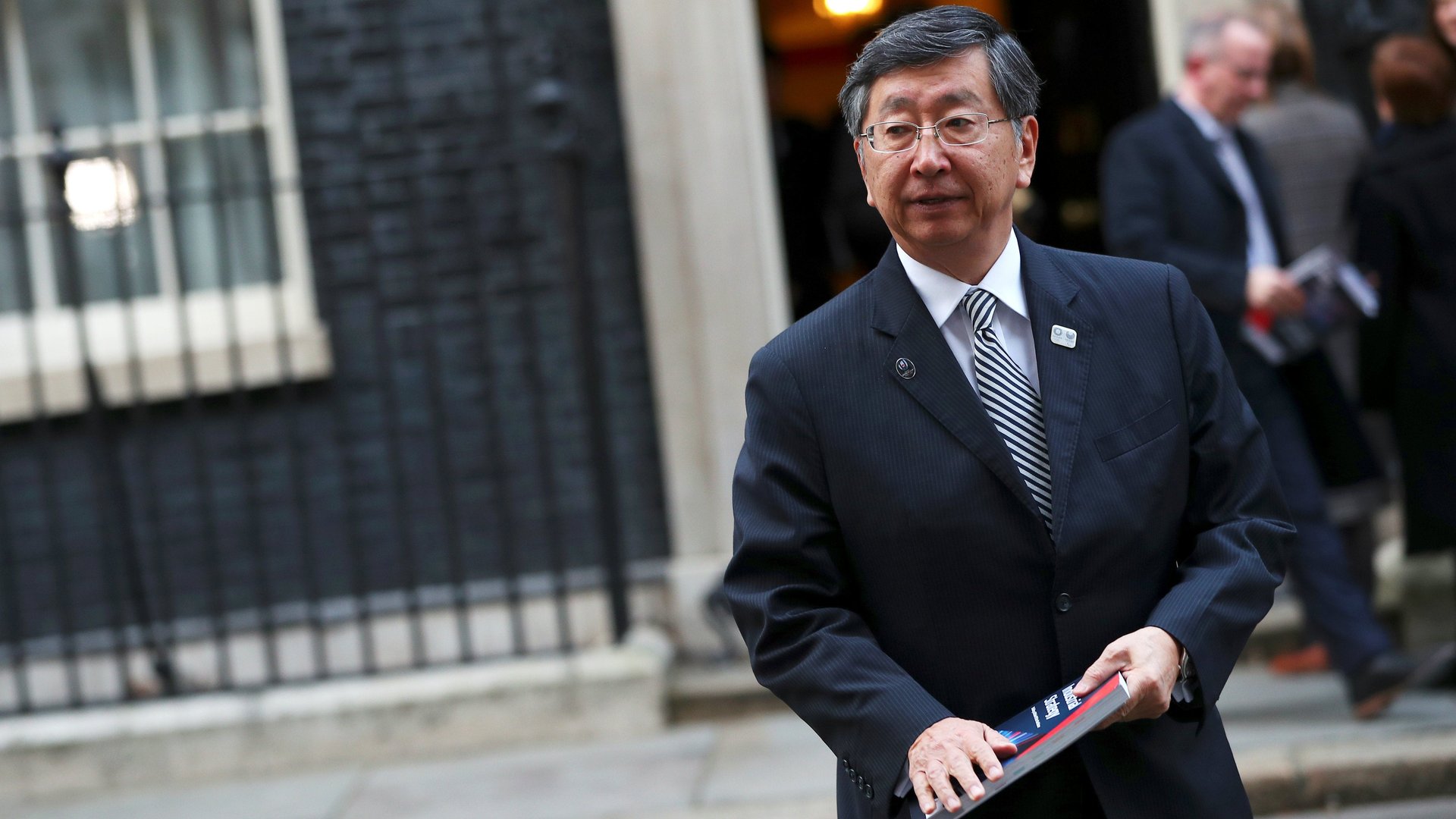With its power over Britain, Japan is aiming to completely reshape Brexit
Update: We have included updated news about Mitsubishi UFJ choosing Amsterdam as its EU investment banking base.


Update: We have included updated news about Mitsubishi UFJ choosing Amsterdam as its EU investment banking base.
There is no question what Japan thinks about Britain leaving the European Union.
Ever since the UK voted for Brexit in June 2016, Japan has spoken out about the nation leaving the EU single market, which would create costly problems for companies operating within Britain. And because of Japan’s intertwined ties with Britain’s economy, it is fast trying to position itself as a key influence over what the final Brexit deal will look like.
Yesterday (Feb. 8), Japan’s ambassador to the UK, Koji Tsuruoka, told reporters following a meeting between prime minister Theresa May and 19 top Japanese bosses that “if there is no profitability of continuing operations in the UK—not Japanese only—no private company can continue operations. So it is as simple as that.” It was the latest in a line of very blunt assessments about Brexit and what effect it would have on foreign companies operating in the UK.
In 2016, Japan’s foreign ministry released a 15-page document addressing the potential damage to Britain’s economy if the UK leaves the single market—something the UK government has repeatedly said it will do. It warned that businesses and banks are likely to relocate operations because Britain leaving the single market makes Japanese businesses “face difficulties.”
This is something that is already starting to happen (paywall). Last year, Japan’s biggest bank, Mitsubishi UFJ, was said to be relocating its UK investment-banking operations (paywall) from London to Amsterdam. In September, it then confirmed that it picked the city in the Netherlands as its EU investment banking base but will still hold it’s EMEA HQ in London. “The new subsidiary in Amsterdam will ensure that the Group can continue to provide these (securities) services to its EU clients, even if the cross-border passport is lost as a result of Brexit,” it said in a statement to Reuters at the time.
Frankfurt has also been floated as an alternative to London for other Japanese financial firms such as Nomura, Daiwa, and Sumitomo Mitsui. Meanwhile, car maker Nissan warned in 2016 that it may have to relocate jobs from its plant in the north of England, until the UK government gave assurances that the country would “remain competitive” post-Brexit.
Japan is being incredibly vocal over what it thinks about Brexit because of the close trade relationship it has with the UK. Currently, the UK imports around $13.7 billion in goods a year from Japan, making it Britain’s 10th-largest trading partner. The 1,000 Japanese companies that operate in the UK also employ some 140,000 people.
Prime minister May and her cabinet have repeatedly said that Britain doesn’t need to stay in the single market because it is able to forge trade deals across the world. She reiterated this point after her meeting with the Japanese ambassador, saying she recognizes that Brexit is “no small undertaking, but importantly it does present the opportunity to strike free-trade deals around the world and build on our already very strong relationship that we have with Japan.”
However, severing ties to the EU’s single market means relinquishing unified import and export rules and costs. One recent report showed that if the UK government decided to pursue the “hard Brexit” route, it would increase prices for UK exports, which could make EU consumers switch to domestically produced goods instead. This in turn would lead to a £17 billion ($22.7 billion) fall in annual EU export revenues across key UK manufacturing sectors.